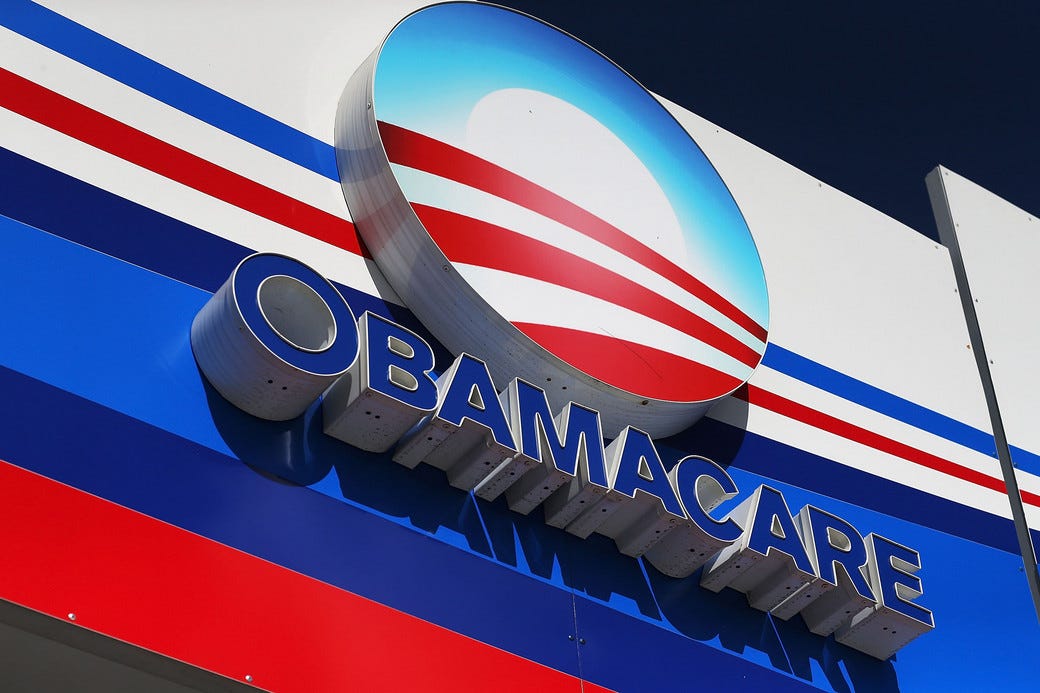Plans, states warn of Obamacare chaos due to GOP megabill
A last-minute change to the House bill threw a curveball to Obamacare insurers who already set their rates for 2026.
Private insurers and state officials are warning of utter chaos in the insurance markets if a last-minute change to the House GOP’s megabill survives in the Senate.
The policy could lead to higher premiums for people who shop for plans on the Obamacare exchanges and cause massive turmoil for actuaries, and leave brokers and state officials with little time between when the law is enacted and the start of open enrollment in the fall to understand the many ways the change affects Affordable Care Act plans.
Under the bill, which the House passed recently, certain federal payments to insurers that President Donald Trump canceled during his first term would resume next year, but only if plans refuse to cover abortions, which they are obligated to cover in 12 states and the District of Columbia.
The policy adds to uncertainty over eligibility changes and the looming expiration of ACA enhanced premium subsidies, and could lead to insurance premiums increasing so steeply they could jeopardize the Obamacare market, according to one insurance executive granted anonymity to speak freely on the issue.
“Putting all three of these into 2026 at once is truly putting the market at risk for a death spiral with rates,” the executive said. “We think Republicans have not really calculated this one.”
Insurers in most states have already submitted two sets of rates for the 2026 plan year to account for the uncertainty over whether the subsidies created in 2021 will be extended. But the return of federal payments to insurers for reducing cost-sharing for low-income customers wasn’t on their radar.
“All of these provisions are put in quickly without [thinking about] how they compound on each other,” said Devon Trolley, executive director of Pennsylvania’s Obamacare exchange called Pennie. “We have multiple cost increases between with the tax credits expiring and a provision that increases the amount people pay towards their premiums. We have a series of provisions [in the megabill] making it harder to enroll.”
The biggest insurer trade group, AHIP, also warned that the quick return of cost-sharing reduction (CSRs) payments would “inject immediate instability” into the markets.
“Individuals and families are looking to Congress to help ensure access to affordable, quality health care,” said spokesperson Tina Stow in a statement. “This policy, if coupled with inaction on extending the premium tax credits, will have the opposite effect, and lead to millions of Americans facing steep premium hikes for coverage in 2026.”
Four million people would likely lose insurance if the subsidies go away, according to an estimate from the left-leaning think tank Commonwealth Fund.
CMS warned the insurers about the potential for CSRs to return by Congress in a bulletin on May 2. The agency did not return a request for comment.
Conservative experts say the return of the federal cost-sharing payments to insurers, which reimburse insurers for a requirement to lower cost-sharing for low-income customers, is a good thing for consumers and will lower premiums for the most commonly used plans.
“This appropriation is a commonsense way to both lower premiums and lower subsidies, a win-win for consumers and taxpayers,” said Brian Blase, president of the right-leaning think tank Paragon Health Institute. “It is not unexpected that insurers dislike this policy since they prefer higher premiums and subsidies.”
Blase added there is “no single action that Congress could take to decrease premiums as much as a [cost-sharing reduction] appropriation.”
But that appropriation isn’t for everyone. The House bill prohibits that money going to plans that cover abortion, and that puts new emphasis on the importance of silver loading, a loophole insurers used in 2017 to make up the costs of CSRs after Trump canceled the federal payments.
Silver loading is when insurance companies artificially inflate the premiums of a certain plan on the exchange to draw down more federal subsidies. The additional subsidies, in effect, make up for the loss of the cost-sharing reduction payments but drive up the premium for certain silver tier plans.
That could be one way plans in states that require abortion coverage could work around the new law.
In Colorado, for instance, the state mandates abortion coverage and still plans to use the loophole. If it cannot, then premiums could spike by roughly 40 percent for most customers and more than 33,000 people would lose coverage.
“People need to know that their access to health care is at risk,” said Colorado Insurance Commissioner Michael Conway in a statement.
Maryland, another state that mandates abortion coverage, would see costs go up if silver loading went away.
“The state could not cover that cost. The only option is you pass that onto the consumer,” said Michele Eberle, the Obamacare exchange’s executive director.






See how poorly thought through this was? Sigh. That’s what happens when you FIRE the experts!